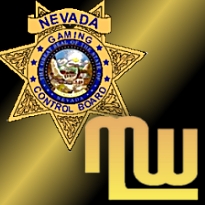 On Thursday, the Nevada Gaming Control Board held its latest public consultation on the latest greatest drafts of its proposed online poker regulations. Among the items up for consideration was whether to allow player-to-player fund transfers, a common enough occurrence in the online poker world, but GCB chairman Mark A. Lipparelli suggested that this (as he phrased it) “shadow banking” could make it difficult to monitor for money laundering and/or attempts to win the Lock Poker Challenge. No definitive action was taken by the GCB at Thursday’s hearing, with Lipparelli deferring to the Nevada Gaming Commission, which is scheduled to hold its own hearing on the issue Nov. 17. If all goes well, the regs are expected to be in place by January.
On Thursday, the Nevada Gaming Control Board held its latest public consultation on the latest greatest drafts of its proposed online poker regulations. Among the items up for consideration was whether to allow player-to-player fund transfers, a common enough occurrence in the online poker world, but GCB chairman Mark A. Lipparelli suggested that this (as he phrased it) “shadow banking” could make it difficult to monitor for money laundering and/or attempts to win the Lock Poker Challenge. No definitive action was taken by the GCB at Thursday’s hearing, with Lipparelli deferring to the Nevada Gaming Commission, which is scheduled to hold its own hearing on the issue Nov. 17. If all goes well, the regs are expected to be in place by January.
PokerAddict.net is suggesting that US-friendly ewallet MoneyLineWallet (MLW) may have gone the way of the dodo bird. MLW was utilized by US-facing poker outfits like Cake, Everleaf and Yatahay, but about two weeks ago, messages titled “Deposit Delays” started popping up in players’ in-boxes and the site’s live chat function has since been disabled. Users can reportedly log-in and view their online accounts, but not complete any transactions. MLW is/was a deposit-only option for US players to fund their online poker accounts.
The US Second Circuit Court of Appeals has declared that poker clubs don’t qualify for the protected assembly aspects of the 1st Amendment to the US Constitution. The suit was originally filed by AK Tournament Play; a former Texas Hold’Em card club in Walkill, New York (77 miles north of NYC). The club, which formerly boasted 130 members, earned the ire of local officials, who attempted to have the club’s building condemned. The unwanted civic attention caused club members to quit, leading to the club’s demise, which in turn prompted the club owners to file suit against the town, alleging “threatening and coercive conduct” that infringed their 1st Amendment rights. Bollocks, said the court, declaring that even if a poker club’s activities could somehow involve “sufficiently expressive or political content” to warrant 1st Amendment protection, the plaintiff’s “conclusory and vague complaint” had failed to paint such a picture. The club is considering yet another appeal.